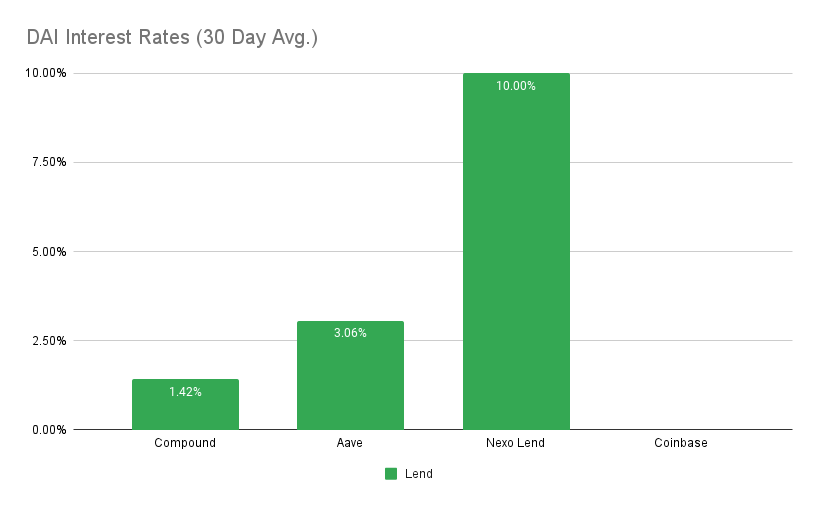This Week In DeFi – Aug 4
This week, drama surrounds Curve's CRV, Coinbase's Base mainnet becomes a roller coaster and the IRS says staking rewards are taxable as soon as they're received.
To the DeFi Community,
This week, Curve has become the center of attention, as a new exploit places founder Michael Egorov’s massive loans under stress once again, as the price of $CRV wavers.
The exploit at hand was not specific to Curve, however it was of course the largest affected protocol. Vulnerabilities in the Vyper smart contract language enabled “reentrancy” attacks by the exploiters, leading to a total of $70 million in losses across the affected platforms.
Egorov has $168 million worth of CRV – 34% of the total market cap – posted as collateral backing loans across several DeFi protocols, putting a large contingent of the DeFi community on-edge as his liquidation price drew nearer.
CRV plummeted as much as 86% on decentralized exchanges after the exploit, however liquidation of Egorov’s positions was avoided due to Chainlink oracles using centralized exchange prices.
Agorov has sold almost 72 million CRV tokens over-the-counter in order to reduce his liquidation risk since the exploit, including 10 million CRV to Huobi co-founder Jun Du, 5 million to Justin Sun, 4.25 million to trader DCFGod,, and more. It has been reported that these tokens were sold at $0.40, a significant discount from current market prices.
Curve, Metronome and Alchemix have offered the hacker a 10% bounty and no legal pursuit, in exchange for returning the entirety of the stolen funds.
https://twitter.com/CurveFinance/status/1687180381714358272
In response to lender risks, lending protocol Abracadabra has seen a pair of proposals to raise the interest rate on loans against CRV in order to prompt earlier repayment.
The newer proposal of the two seeks to increase the interest rate on Egorov’s positions to 80%, but variable depending on the outstanding loan balance and the health of the borrowing position.
As for Aave, security firm Gauntlet has proposed that the protocol pause all borrowing activity against CRV to mitigate any additional risk of bad debt, by setting the CRV loan-to-value ratio to 0.
Both proposals detailed above appear to be on track to pass within the next several days.
In Layer-2 news, Coinbase’s scaling platform Base has experienced a rollercoaster of early activity, despite its mainnet still being in a “developer access period”.
Users bridged hastily over to the chain, without a bridge UI, to speculate on a flurry of new meme tokens including $BALD. In the space of just a few days, $BALD saw its market cap rise from zero to well over $90 million, before dumping 90% after an apparent “rug pull” by its anonymous developer, who some claim had ties to Alameda Research.
But the drama didn’t stop there – LeetSwap, the chain’s leading DEX at the beginning of the frenzy, experienced its own exploit that led to developers having to halt activity on the exchange. The initial exploit saw around 340 ETH (about $630,000) worth of liquidity drained from the platform.
Base has announced that the chain will be officially open to the public August 9, with Coinbase running an “Onchain Summer” campaign to promote the platform.
https://twitter.com/coinbase/status/1687087501507469312
Although much controversy has taken the limelight in this week’s DeFi headlines, don’t let that fool you – there has also been a wealth of new integrations and development!
One interesting new thing out of this week is EIP-6968, which proposes a new token type that allows developers to claim a portion of transaction fees generated from use of their smart contracts. These revenues could be used to fund further development, public goods, or simply provide developers with incentives.
We also had THORSwap introduce “Streaming Swaps,” a feature which automatically breaks large trades down internally to minimize slippage and maximize efficiency, without the need to manually execute multiple smaller trades. This also works well to minimize gas fees, since the trade is treated as a single transaction.
Yet another interesting innovation has been Ribbon Finance (now Aevo) creating and settling the first “Autocallable” product on Ethereum – a popular financial instrument in traditional finance.
Over in regulatory news, the IRS has made a statement saying that staking rewards should be counted as income at market value as soon they are received – perhaps leading to some interesting and/or unfavorable implications for large stakers.
Interest Rates
DAI
Highest Yields: Nexo Lend at 10% APY, Aave at 3.1% APY
MakerDAO Updates
DAI Savings Rate: 3.49%
Base Fee: 0.00%
ETH Stability Fee: 3.49%
WBTC Stability Fee: 5.55%
USDC
Highest Yields: Nexo Lend at 10% APY, Compound at 6.8% APY
Top Stories
IRS: Crypto Staking Rewards Taxable Once Investor Gets Hands on Tokens
Proposed Ethereum Upgrade Could Allow Layer 2 Developers To Share Fee Revenue
Ethereum futures become latest ETF craze as applications tumble in
Coinbase Looks to Add Bitcoin Lightning for Payments
Stat Box
Total Value Locked: $40.50B (down 6.2% since last week)
DeFi Market Cap: $47.91B (down 3.0%)
DEX Weekly Volume: $11.50B (up 23%)
Bonus Reads
[Sage D. Young – CoinDesk] – Decentralized Exchange THORSwap Introduces New Feature Aimed at Better Price Execution for Large Trades
[Sage D. Young – CoinDesk] – DYdX Proposal to Slash Token Issuance Wins Early Support
[Yogita Khatri – The Block] – PancakeSwap to share trading-fee revenue with CAKE token stakers
[Omkar Godbole – CoinDesk] – Ribbon Finance Settles First On-Chain Ether 'Autocallable' With Marex and MEV Capital












